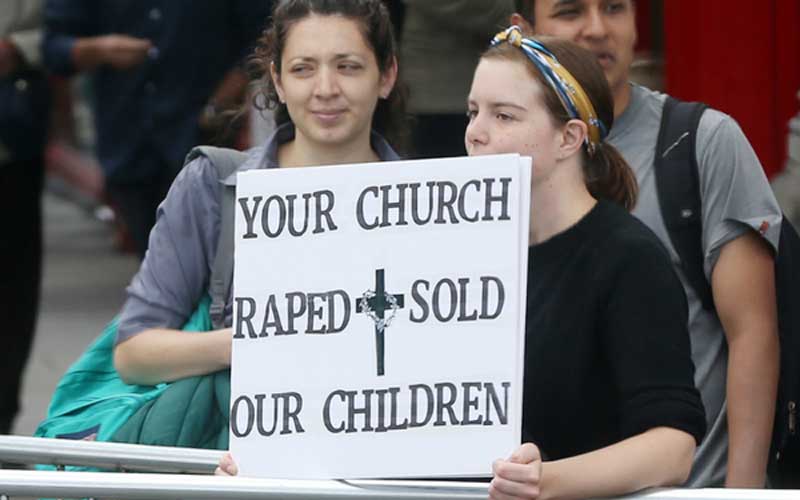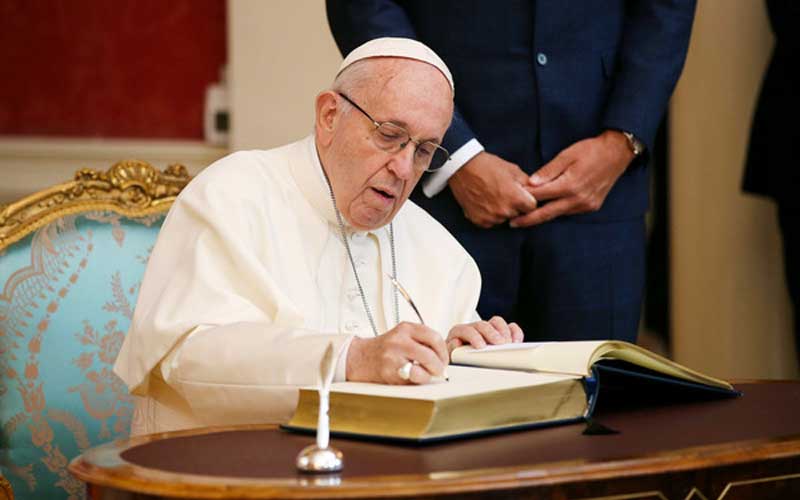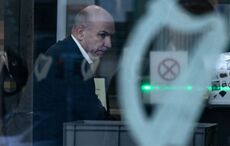Pope Francis has apologized profusely for the sex abuse scandal and the treatment of the Magdalene women in remarks at Dublin Castle.
“With regard to the most vulnerable, I cannot fail to acknowledge the grave scandal caused in Ireland by the abuse of young people by members of the Church charged with responsibility for their protection and education,” Francis, who spoke in Italian, told an audience that included Taoiseach Leo Varadkar.
“The failure of ecclesiastical authorities - bishops, religious superiors, priests and others - adequately to address these repugnant crimes has rightly given rise to outrage and remains a source of pain and shame for the Catholic community. I myself share these sentiments.”
Francis referred to remarks of former Pope Benedict in a letter to Irish Catholics stating that he “spared no words in recognizing both the gravity of the situation” and in demanding that “truly evangelical, just and effective” measures be taken in response “to this betrayal of trust.”
“His frank and decisive intervention continues to serve as an incentive for the efforts of the Church’s leadership both to remedy past mistakes and to adopt stringent norms meant to ensure that they do not happen again,” said Pope Francis.

Protestors hold a sign outside Dublin Castle as they wait for the arrival of Pope Francis during the first day of his visit to Ireland. Credit: RollingNews.ie
“Each child is in fact a precious gift of God, to be cherished, encouraged to develop his or her gifts, and guided to spiritual maturity and human flourishing.”
While recognizing the Church’s failures in the clerical abuse scandal, the Pope noted too that the Church had “past and present, played a role in promoting the welfare of children that cannot be obscured.”
“It is my hope that the gravity of the abuse scandals, which have cast light on the failings of many, will serve to emphasize the importance of the protection of minors and vulnerable adults on the part of society as a whole,” he said.
“In this regard, all of us are aware of how urgent it is to provide our young people with wise guidance and sound values in their journey to maturity.”
Three months after Ireland voted to legalize abortion, Pope Francis attacked the pro-abortion forces and condemned “a materialistic ‘throwaway culture’” saying it had made people “increasingly indifferent to the poor and to the most defenseless members of our human family, including the unborn, deprived of the very right to life.”

Pope Francis signing the guest book at Dublin Castle. Credit: RollingNews.ie
Pope Francis spoke about the triumph of the peace process.
“The Irish Government, in union with the political, religious and civil leaders of Northern Ireland and the British government, and with the support of other world leaders, created a dynamic context for the peaceful settlement of a conflict that caused untold pain on both sides,” he said at Dublin Castle.
“We can give thanks for the two decades of peace that followed this historic agreement, while expressing firm hope that the peace process will overcome every remaining obstacle and help give birth to a future of harmony, reconciliation and mutual trust.”
Read More: A tale of two popes: Recalling John Paul in Ireland as Francis visits
Francis spoke about the importance of recovering “the sense of being a true family of peoples” in every instance of political and social life, referencing the Irish peace process. US Senator George Mitchell, chairman of the peace talks, was present.
The pope urged the Irish “never to lose hope or the courage to persevere in the moral imperative to be peacemakers, reconcilers and guardians of one another.”
“Here in Ireland, this challenge has a special resonance, in light of the long conflict that separated brothers and sisters of a single family,” he said.




Comments